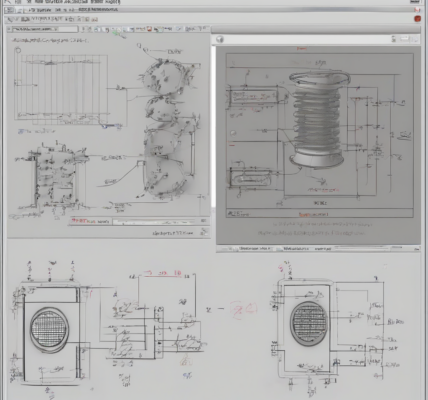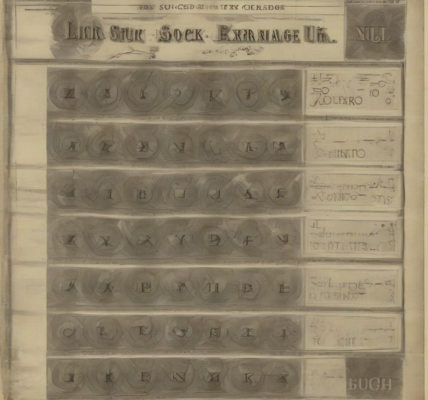Navigating the Complex World of Cryptocurrency Exchangers: A Comprehensive Guide
The rise of cryptocurrencies has ushered in a new era of decentralized finance, creating opportunities for investment and transactions previously unimaginable. Central to this ecosystem are cryptocurrency exchangers, platforms that facilitate the buying, selling, and trading of digital assets. Understanding these exchangers is crucial for anyone venturing into the world of crypto, as the right choice can significantly impact security, fees, and overall experience.
Types of Cryptocurrency Exchangers
- Centralized Exchanges (CEXs): These are the most common type, acting as intermediaries between buyers and sellers. They hold user funds in custody, offering a convenient and generally user-friendly experience. Examples include Coinbase, Binance, Kraken, and many others. While convenient, CEXs present risks associated with platform security and regulatory compliance.
- Decentralized Exchanges (DEXs): Unlike CEXs, DEXs operate without a central authority. They utilize smart contracts on blockchains to facilitate peer-to-peer trading, offering greater anonymity and security from single points of failure. However, DEXs often have higher transaction fees and can be more complex to use for beginners.
- Peer-to-Peer (P2P) Exchanges: These platforms connect buyers and sellers directly, allowing for greater flexibility in pricing and payment methods. However, they typically involve higher risks due to the lack of intermediary oversight and the potential for scams.
Key Factors to Consider When Choosing a Cryptocurrency Exchanger
- Security: This is paramount. Look for exchanges with robust security measures, including two-factor authentication (2FA), cold storage for a significant portion of their funds, and a proven track record of resisting hacks. Research the exchange’s history and reputation thoroughly.
- Fees: Exchangers charge fees for various services, including trading fees, deposit fees, and withdrawal fees. Compare fee structures across different platforms to find the most cost-effective option. Pay close attention to hidden fees or unexpected charges.
- Supported Cryptocurrencies: Different exchanges support different cryptocurrencies. Ensure the platform offers the specific assets you intend to trade.
- Trading Volume and Liquidity: High trading volume indicates a liquid market, making it easier to buy and sell cryptocurrencies without significant price slippage. A less liquid market can lead to unfavorable prices.
- User Interface and Experience (UI/UX): A user-friendly interface is crucial, especially for beginners. Consider the ease of navigation, the availability of educational resources, and the overall user experience.
- Customer Support: Reliable and responsive customer support is essential in case of issues or questions. Check the availability of different support channels, such as email, live chat, and phone.
- Regulatory Compliance: The regulatory landscape for cryptocurrencies is evolving rapidly. Choose an exchange that complies with relevant regulations in your jurisdiction to mitigate legal risks.
- KYC/AML Compliance: Know Your Customer (KYC) and Anti-Money Laundering (AML) procedures are standard practice for most reputable exchanges. While these procedures may be inconvenient, they are essential for maintaining the integrity of the financial system.
- Reputation and Reviews: Research the exchange’s reputation by reading reviews and looking for any reports of scams or security breaches. Look for reputable sources of information, avoiding biased or misleading reviews.
Understanding Exchange Fees
- Trading Fees: These are charged on each trade you make, typically expressed as a percentage of the transaction value. Fees vary widely across exchanges.
- Deposit Fees: Some exchanges charge fees for depositing funds, while others offer free deposits. Check the fee schedule carefully before depositing funds.
- Withdrawal Fees: Withdrawal fees are charged when you withdraw funds from the exchange. These fees vary depending on the cryptocurrency and the withdrawal method.
- Maker/Taker Fees: Many exchanges use a maker/taker fee model. Maker fees are charged for placing limit orders (orders that add liquidity to the market), while taker fees are charged for placing market orders (orders that remove liquidity from the market).
Security Best Practices When Using Cryptocurrency Exchangers
- Enable Two-Factor Authentication (2FA): This adds an extra layer of security to your account, making it much harder for unauthorized users to access your funds.
- Use a Strong and Unique Password: Avoid using easily guessable passwords and use a password manager to store your passwords securely.
- Be Wary of Phishing Scams: Be cautious of suspicious emails or messages that ask for your login credentials or personal information.
- Only Use Official Channels: Avoid using third-party websites or applications to access your exchange account.
- Regularly Review Your Account Activity: Monitor your account activity for any unauthorized transactions.
- Keep Your Software Updated: Ensure your devices and software are up-to-date with the latest security patches.
- Use a Hardware Wallet for Long-Term Storage: For long-term storage of cryptocurrencies, consider using a hardware wallet, which provides a high level of security.
Legal and Regulatory Considerations
The regulatory landscape for cryptocurrencies varies significantly across jurisdictions. It’s crucial to understand the laws and regulations in your region before using cryptocurrency exchangers. Some countries have strict regulations, while others have a more permissive approach. Failure to comply with local regulations can lead to legal consequences.
The Future of Cryptocurrency Exchangers
The cryptocurrency exchange landscape is constantly evolving. We can expect to see continued innovation in areas such as security, user experience, and regulatory compliance. The integration of decentralized technologies, such as blockchain and smart contracts, is likely to play a significant role in shaping the future of cryptocurrency exchanges.
Conclusion (Omitted as per instructions)




